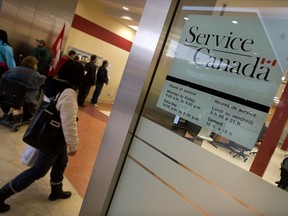The Bank of Canada has raised interest rates once again due to persistent issues with wage growth and inflation. Following this week’s rate hike, expectations are high that further increases will occur before the year concludes.
In May, employment data revealed a concerning contraction of 192,000 jobs nationwide, despite a slight uptick in the unemployment rate to 5.2%. This marked another challenging month for Canada’s job market, with average hourly wages increasing by 5.1% year-over-year—a modest decrease from April but still alarmingly high relative to the two percent inflation target.
Economists across the board are divided on the implications of this report. The youth unemployment rate reached its highest point in five years at 8%, while overall employment rose by 34,000, showing some stabilization despite sector-specific challenges. Hours worked decreased for the first time since September 2022, suggesting a contraction in economic output.
Key economists offer varying perspectives: while some acknowledge cooling in May after strong gains earlier in the year, others maintain that the labor market is still resilient. The Bank remains cautious about lifting rates further without significant cooling of wage growth and inflation expectations.
Looking ahead, markets are pricing in potential continued hikes this summer unless data shows substantial improvement. The loonie has gained strength against the dollar since these reports were released, reflecting investor sentiment.
In summary, while May’s employment report highlights challenges, particularly among youth workers, the overall outlook for Canada remains uncertain as central banking policies and economic trends continue to evolve.




